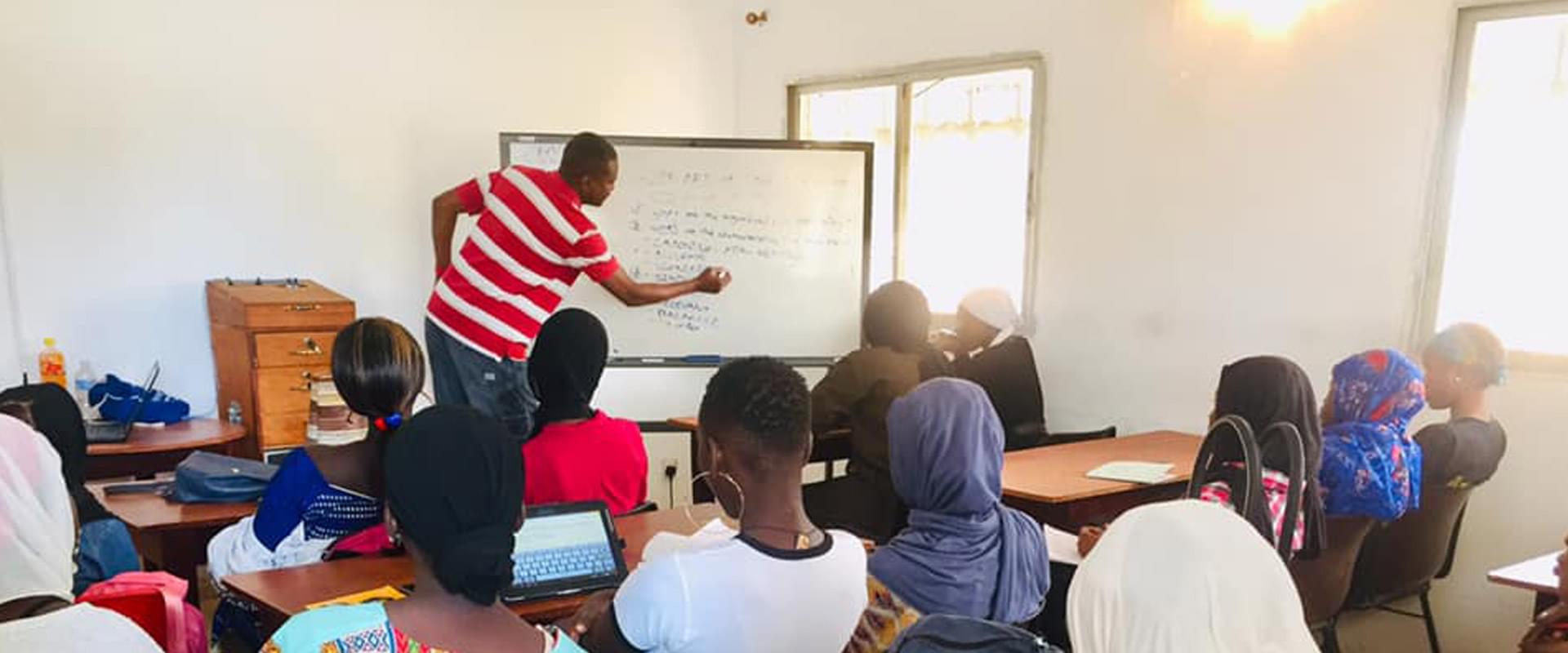
Sep 20, 2023 7:21 AM | Article By: Abibatou Ceesay

Percentage of adults with diebetes
Millions of people around the world are silently battling an enemy that threatens their health and well-being. From heart disease to diabetes, Non-Communicable Diseases (NCDs) are on the rise, impacting individuals of all ages and backgrounds.
Diabetes is a chronic Non-Communicable Disease that affect millions of people worldwide. According to the World Health Organization, approximately 422 million adults globally have diabetes. This number is expected to rise to 642 million by 2040. The highest prevalence rates are found in low- and middle-income countries.
In the Gambia, the prevalence of diabetes is according to The Gambia's 2018 NDCs national profile accounted for 34% of all deaths including diabetes, an increase from the 32% reported in 2014. This accounts for 1/3 of the Gambia’s population. WHO predicts that about 4% of The Gambia’s population could be diabetic by 2030, underscoring the importance of strengthening awareness of NCDs, specifically diabetes in the country.
Dr. Abubacarr Jah, Consultant Urologic Surgeon at Sarab Medical Center, said diabetes is caused by the accumulation of sugar (glucose) in the blood stream which is not able to move to other parts of the body, muscles and the brain. He added that, type 1 diabetes is caused by an autoimmune response that destroys insulin-producing cells in the pancreas. Type 2 diabetes, which accounts for the majority of cases, is primarily caused by lifestyle factors such as poor diet, lack of physical activity, and obesity
“One of the complications of diabetes is that it affects the reproductive system for men, causes low vision which can lead to blindness and even amputation”.
Abubacarr Bah, a Public Health lecturer at the University of the Gambia, highlighted that one of the main challenges in managing diabetes is ensuring access to affordable and quality healthcare, including regular monitoring of blood glucose levels and medication.
“One of the major challenges is that lot of people with diabetes are yet to be diagnosed. Diagnostic tools are not accessible by many especially in the rural areas thereby posing a big challenge for patients.
Bah added that, lifestyle modifications, such as adopting a healthy diet and engaging in regular exercise, can help reduce the risks of getting diabetes.
Diabetes which used to be common among adult folk is now prevalent among young people. Fatou Saine is a 22-year-old girl who was diagnosed with type 2 diabetes when she was 20. Reflecting on her struggles, she revealed that she visited many hospitals but was not able to get the correct information as to what sickness she was having. After series of laboratory tests, she was eventually diagnosed to have diabetes.
“I feel weakness in my body which prevents me from doing some of the things I love. It has limited my social life because not a month passes by and I am not admitted at the hospital. I am aware that there is no cure for diabetes but I am adhering to all measures to prevent further escalation”, saine added.
Nyima Ceesay is a student nurse at the University of the Gambia. Inspired by the desire to help communities, Nyima is creating awareness on diabetes and other chronic non-communicable disease. Through her efforts, she mobilized community members and conduct house-to-house campaigns which has gained attraction, reaching people far and inspiring them to take control of their health.
“I have taken up the responsibility to educate communities about diabetes, it’s effects and the prevention measures. I have a blood glucose machine and a BLOOD pressure machine which I use to test where or not they have diabetes. I also educate them on the risk factors of this major chronic disease. The reason I took up this initiative is that as a student nurse, I want to contribute positively to my society and this way, I believe communities will be aware and more conscious of their health”, Ceesay added. Through her efforts, Nyima not only raises awareness about diabetes but also create a supportive community for those affected by the condition.
The burden of NCDs is expected to increase in The Gambia if preventive and control measures are not taken. The prevalence of diabetes is increasing at an alarming rate, posing significant challenges for individuals, healthcare systems, and societies.
Comments (0)
0 Likes
Leave your thought here
Your email address will not be published. Required fields are marked *